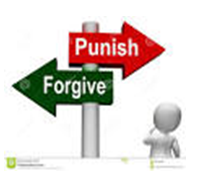Have you been regretting your decisions lately? Here is how you can overcome this bad habit. Check out our 9 powerful tips to live a life without regrets.
Joyce Meyer defines regret as “Distress over a desire unfulfilled or an action performed or not performed”. It can either be productive or unproductive. Productive regret has a positive outcome where you learn to change your behavior for the future. Unproductive regret however may cause chronic stress as a result blaming oneself. As mentioned above regret can be due to things done or not done. Below are steps you should take to reduce regrets in your life.
Use Cognitive-Behavioral Therapy (CBT)
“Rather than frustrating you with the unrealistic goal of stopping the thoughts, cognitive-behavior therapy helps by *weakening the connection between obsessive thinking and the rest of your working life.”
CBT helps you to focus on emotional healing and how to kill unproductive thoughts that drag you into regrets. You will change your feelings of shame, guilt and anger, and ultimately end up reducing or replacing your feelings of regret.
Listen to your voice
Being miserable is always your choice. Make your mind believe you can do it, before actually doing it. If you think negatively, you will produce negative results. The reverse is true. Period.
Take failures as lessons
research by Mike Morrison and Neal J. Roese found out that:
“Romance was the number one regret. People crave strong, stable social relationships and are unhappy when they lack them.”
We fear loneliness. Everyone fears being left alone. Such fears may drive you to settle with the wrong person, to become second best. Even though you may feel unhappy in your relationship, you may mistakenly trick yourself into believing that you are happy. You tend to think that you can never find a better person to love. As the years roll by, the endless bickering and withdrawal turn into hatred, and you’ll find yourself wishing you had made different choices back in the day. So make the choices now. If they haven’t changed after a year and still sneers at your dreams, make derogatory comments about how you dress and talk, think twice. If your partner looks down on your friends and relatives, chances are they will never change. Run for the hills. Don’t settle for less, it will only serve to belittle you and ultimately, you will end up regrett ing.
Be honest
Honesty can lead you to wealth. You have to be credible and trustworthy to attract investors and to build relationships. Without honesty you’ll spend the better part of your life second guessing other peoples intentions, thereby losing golden friendships. It is important you realize that most things may not work out. And in most of the time it could be your fault not the other person’s fault. So be honest with oneself. Kill the ugly habit of blaming the other people. Take full responsibility. Be honest with yourself. That is the blunt truth.
Don’t be afraid to reach your full potential
Concrete steps to achieve your full potential. The biggest step you’ll ever take in life is the first one. So don’t be afraid to try, after all you’ll never know how high you’ll soar if you don’t spread your wings.
Own up to your mistakes

We hate making mistakes. Owning up to our mistakes is even worse. If we don’t admit to our mistakes, we’ll most probably end up repeating them. Not forgetting the guilt that comes with cover-ups. It is human to make a wrong move, make a bad choice or rub someone the wrong way. You can keep regretting about it. It will drain you of the energy you need to execute other important tasks. Learn from your mistakes. Learn to move on rather than living in the past, regretting your mistakes. Why should you torment yourself when you can clear up the air and be at peace? The sooner you own up to your mistakes the faster you can learn from it and shift your focus to other, better things.
Forgiveness

You may be haunted by something that happened in your past. It could be a terrible decision that you regret making or someone wronged you. Learn to forgive. Forgiveness absolves the wrong doer, but more importantly it liberates you by freeing your conscience and thus allowing you to focus on other things that make you happy. Harboring resentment gives other people power over you. Forgiveness is not just for the other person. Learn to forgive yourself too. Forgiving yourself reduces your feelings of guilt and boosts your confidence. This will impact greatly on different areas of your life and therefore improve how you relate with others.
The choice about the life you want to live rests solely in your hands. Do not let fear dictate the kind of life you will lead. Your happiness is depended on how you choose to respond to your feelings of fear or guilt. If you can’t change a situation, see it as an opportunity to learn from. If you have the energy and a second chance, chase your dreams. Better you to such a point that when asked if you’d have done things differently, your answer would be a resounding no, as it should be. Learn from your regrets and remember them, so that you can evade the next window for regret. There are lots of ways of avoiding regrets in life. I have just highlighted a few.
Do you know of other ways of avoiding regrets?

More Posts
16 Daily Planning Tips to Balance Work and Life
![Daily Planning Tips to Balance Work and Life]() You may juggle various roles, tasks, and responsibilities daily, making it challenging to achieve a healthy work-life balance. However, work-life balance is not a myth—it's...
6 Must-Try iPad Digital Planners for Professionals
If you're tired of traditional paper planners and looking to transition into digital planning, you've come to the right place. Whether you're a business professional juggling complex projects or a creative person sketching...
11 Best Time Management Podcasts for Improved Productivity
In our fast-paced world, managing time well is super important. Many believe it could boost work productivity a lot. So, learning good time management strategies is key. A great way is through podcasts....
10 Strategies to have a Productive Mindset
A productive mindset is more than doing more tasks. It's about being more efficient in everything. Knowing you can improve your productivity is a good first step. It puts you ahead of those...